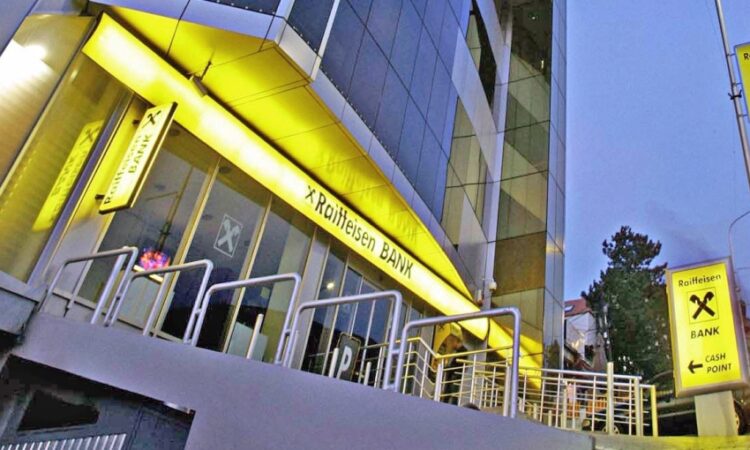bne IntelliNews – INTERVIEW: Kosovo’s banking sector is competitive and resilient, says RBK CEO

Kosovo is Europe’s youngest country, but its banking sector has shown itself to be mature and resilient, Anita Kovacic, the CEO of Raiffeisen Bank Kosovo (RBK), said in an interview with bne IntelliNews.
Kovacic, the CEO of Kosovo’s largest bank, describes a sector that is “sound, liquid and profitable” as well as increasingly competitive.
“Over the past years, several banks entered the Kosovan market, leading to the establishment of a competitive banking sector. The banking sector has managed to maintain a high level of capitalisation and liquidity and low level of non-performing loans, which as result increased the loss absorbing capacity of the sector over the years,” says Kovacic.
“In addition, the sector has also shown itself to be resilient, mature and capable of adapting to new circumstances. All in all, in my opinion, the banking sector in Kosovo can respond to the demands of the markets similarly to how the banking sectors in the region do.”
Kosovo’s greatest asset is arguably its growing and youthful population – in contrast to the rest of the Emerging Europe region, where almost all countries’ populations are experiencing long-term decline. This creates opportunities for the banking sector too.
“Kosovo is one of the youngest countries in Europe and being close to major markets in Europe and having a young population give the country advantages for growth. Furthermore, low taxes and labour costs, a healthy financial sector, and strong ties with its diaspora add yet to the advantages,” Kovacic tells bne IntelliNews.
RBK entered the Kosovan market back in 2002, six years before the country’s declaration of independence from Serbia. The bank’s journey began with the acquisition of the shares of the American Bank of Kosovo, followed by its rebranding as Raiffeisen Bank of Kosovo in 2003. Over the years, RBK has not only become the largest bank in Kosovo but has also demonstrated a commitment to adapting to market trends, fostering sustainability, and contributing to the country’s economic growth.
While having the largest branch network in the country, RBK has strategically focused on expanding its digital offerings while maintaining its physical presence. Despite economic challenges in 2022, including high inflation rates, Kosovo’s economy grew by 3.5%, and RBK reported a strong performance in its own operations.
“Even in these circumstances, Raiffeisen Bank Kosovo has consistently improved its performance across essential financial metrics, resulting in both our financial success and increased customer satisfaction. Profits at our bank have been consistently increasing,” said Kovacic.
Kovacic identifies key sectors with high potential in Kosovo, including mineral mining, construction materials, IT, renewables, tourism, agriculture and manufacturing.
“The Western Balkans in general, and Kosovo in particular, has a young population and an untapped banking potential,” says Kovacic. “For instance, the IT sector is thriving recently, and many young people are involved in this sector. In recent years, the country has begun to shift its focus [on to] a greener and more digital economy, therefore technology and renewables have high potential, but also tourism, agriculture and manufacturing, to move towards a more export-oriented economy.”
Kovacic stresses RBK’s commitment to sustainability, as shown by its collaboration with the United Nations Development Programme (UNDP) and partnerships with the European Union and the European Bank for Reconstruction and Development (EBRD).
“Being the largest bank in the country, Raiffeisen seeks to play its role in promoting responsible banking and sustainable finance through its ESG (environmental, social, governance) agenda,” says Kovacic. This focuses on core business practices, employee welfare, community investment and in-house ecological initiatives.
Some of the steps RBK has taken include the distribution of recycled-material VISA cards, a hybrid vehicle fleet, a revised business travel policy to reduce the bank’s carbon footprint, and the installation of solar panels for clean energy production.
Furthermore, RBK’s involvement in projects like the BOOST Project with the UNDP demonstrates its commitment to supporting small and medium enterprises (SMEs) in their green transition, contributing to the broader environmental goals of Kosovo.





